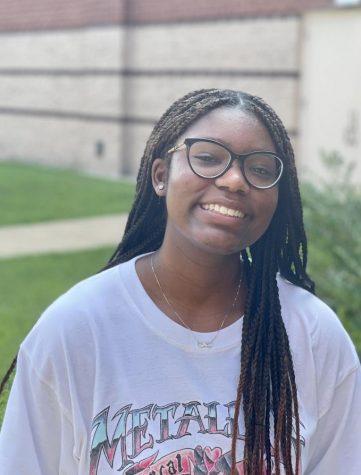The Importance of HBCUs
March 22, 2022
Choosing which college to spend the next four years of your life is hard. You have to take into account the price, how far it’s away from home, how much financial aid you will be receiving, and these are just a few of the many considerations.
For students of Color, one of the biggest considerations is the demographics of the university. Being a Black student, the demographic chart is the first thing I looked at before applying or going to any school. Seeing that schools that I had dreamed of attending were made up of less than 5% of people who looked like me, I decided to take an alternative route, which was Historically Black Colleges and Universities (HBCUs).
HBCUs are definitely seeing an upward curve, and that is due to the fact more and more Black students are choosing them over the traditional Predominantly White Institutions (PWIs)
“It’s [HBCUs] somewhere I wanna be,” said Alex Njie (‘22), “they celebrate the culture, but they also create a community where you can learn with other students with like-minded values.”
The culture is what makes HBCUs such an experience, from extravagant homecomings to amazing opportunities for Black students.
“Being at an HBCU, you’re able to come together with thousands of other talented and smart black students from all across the country and share your gifts. Ultimately, I learned how to truly be unapologetically black” said Jaedia Rodgers Forge Alum and North Carolina A&T (‘21).
According to the US News Best National University list, the first HBCU to be mentioned is Howard University ranked at 83rd. There are no other HBCUs on that list. Although there has been a significant increase in the enrollment within HBCUs, schools like Bowie State and Howard saw an 8-15% increase in enrollment during the 21-22 school year. HBCUs are on the up and up but many Black students are still choosing to attend PWIs.
“I didn’t think, I’m just not going to apply to HBCUs…it just happened. I look at the college ranking list. I am trying to go to a prestigious university, and unfortunately, they’re not up there,” said Daniel Dapah (‘22).
Another recent challenge HBCUs have been facing is bomb threats. In the United States, there are 107 Historically Black Colleges and Universities (HBCUs), of that 107, 57 universities have been threatened with bomb attacks since January 2022.
The FBI released this statement in response to the threats, “The FBI Joint Terrorism Task Forces are leading the investigation into the nationwide series of bomb threats to Historically Black Colleges and Universities and houses of worship. This investigation is of the highest priority for the Bureau and involves more than 20 FBI field offices across the country.”
These threats were especially scary to the students who attend these universities. when picking a college safety, is the number one concern.
“In response to the bomb threats, Howard worked with Metropolitan Police Department and FBI and made sure to send alerts as they were made aware,” said Amari Esco Forge Alum and Howard University Freshmen (‘21).
Being at an HBCU and being Black, in general, is all about resilience and many Black students who attend HBCUs may be going because they have been put in a box due to them constantly being the minority.
“When you go from a predominantly white space to a predominantly black space you notice a huge change. I feel safer in the room. A lot of times it feels like you have to put a filter on who you are when you’re in a white space to protect yourself. I don’t have to do that here [North Carolina A&T]” said Rodgers (‘21).
Choosing to go to an HBCU is not for everyone and that is understandable, but being able to not just have one safe place, but an entire safe haven is an opportunity many are not willing to give up.
“Black people and our culture are the majority that holds the power while other races are in the minority. The special thing is that I don’t experience the racism, adultification, and prejudice that I did at Forge and probably would’ve experienced at the PWI I initially planned on attending” said Rodgers (‘21).


